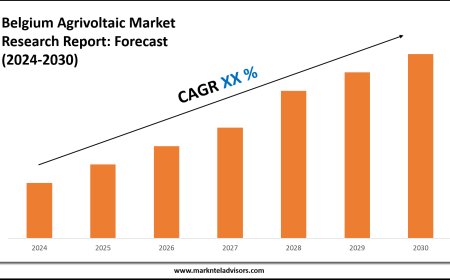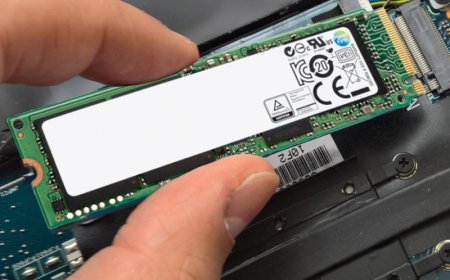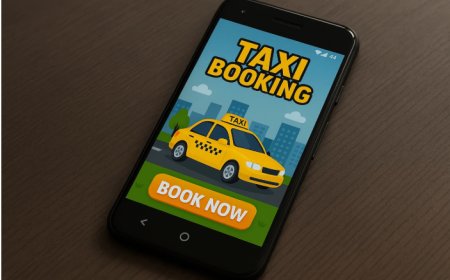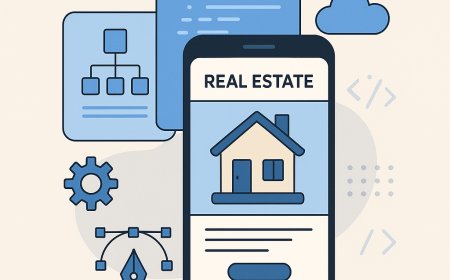How Your Daily Commute Could Be Smarter in 2025
Tired of traffic and stress? See how AI, smart cars, and connected tech could turn your daily commute in 2025 into a faster, safer, smoother experience.

The way we travel is transforming rapidly, and by 2025, your daily commute may look very different from what you're used to now. From AI-enhanced navigation systems to electric scooters and smart parking solutions, technology is working its way into every minute of our travel time.
In a city like Dubai, where traffic is part of daily life, these changes couldnt come soon enough. As governments across the UAE push towards smart mobility and sustainability, commuters can expect a future where getting from point A to point B is safer, faster, and more efficient.
Heres how your everyday journey to work or school might get smarter by 2025.
1. Smarter Navigation with Predictive AI
Forget simple GPS. In 2025, navigation systems will do more than just map routes. With machine learning and AI, theyll be able to predict traffic patterns, understand driver behaviour, and make real-time decisions based on external factors like weather, accidents, or even road construction.
For example, your cars dashboard may recommend leaving home ten minutes earlier because of a developing bottleneck on Sheikh Zayed Road, or suggest an alternate route through Al Khail Road with smoother traffic.
These systems wont just save time, theyll reduce driver stress and improve fuel efficiency by avoiding unnecessary idling or stop-and-go traffic.
2. Connected Vehicles and Real-Time Data Sharing
One major upgrade coming to your commute is the integration of connected vehicles. These cars can "talk" to other vehicles, traffic lights, and road infrastructure. Known as V2X (Vehicle-to-Everything) communication, it allows your car to receive live updates about nearby vehicles, pedestrian movement, and upcoming traffic signals.
This tech helps in making lane changes safer, reducing rear-end collisions, and enabling smoother traffic flow. Even public buses and taxis in cities like Abu Dhabi are expected to join the connected ecosystem, improving fleet coordination and on-time arrivals.
3. Smarter Tyres and Predictive Maintenance
By 2025, vehicle health monitoring will become part of your routine. Modern cars will notify you when your oil is low, brakes are wearing out, or tyres need replacing. Smart sensors embedded in tyres will monitor tread wear, air pressure, and temperatureall in real time.
These systems will not only alert you to issues but also schedule service appointments automatically or recommend nearby garages.
This is particularly helpful when keeping tabs on car tyre price in the UAE. With digital platforms and predictive alerts, drivers can avoid sudden expenses and instead plan replacements based on price trends and seasonal tyre offers. It means better budgeting and safer road performance without the last-minute rush.
4. Public Transit Integration via Mobile Apps
While private vehicles remain popular, public transport will continue to evolve to meet the smart city vision. In Dubai and Sharjah, integrated mobility apps will let commuters plan trips using a combination of metro, tram, bus, and even last-mile services like ride-hailing or electric bikes.
Real-time data will show you the exact arrival time of your next bus, how full the metro is, or if theres parking available at your destination. Commuters will have the flexibility to mix and match modes of transport based on cost, convenience, and timeall from their smartphone.
By 2025, your transport app could offer subscription-based packages that combine public transport access with discounts on taxis or parkingperfect for hybrid commuters.
5. Electric Vehicles Becoming the Norm
EV adoption is already growing across the UAE, and by 2025, electric cars will play a much bigger role in your commute. With increased charging infrastructure and government incentives, EVs are becoming a practical choice for daily driving.
Brands like Tesla, Nissan, and Hyundai are releasing more affordable EV models, while UAE-based initiatives are adding more charging points across business hubs, shopping malls, and residential communities.
Expect quieter commutes, lower fuel costs, and reduced emissionsall aligned with the UAEs Vision 2030 sustainability goals. And with fewer moving parts in EVs, maintenance costs will drop significantly, making the daily drive more economical over time.
6. Parking Gets Automated and Smarter
One of the biggest headaches of commuting is parking, especially in busy areas like Downtown Dubai or Marina. But in 2025, parking is set to be smarter, faster, and completely hassle-free.
Automated parking systems will let you drop your vehicle at a designated bay, and sensors will guide it to a secure spotall without you stepping out. Mobile apps will help you reserve parking ahead of time and even pay digitally.
Some systems will even guide you to free spots using AI-powered cameras, removing the guesswork and circling. This reduces both time and fuel wasted in parking searches, making your commute smoother from start to finish.
7. Remote Work and Hybrid Models
Technology is also changing the very idea of a commute. With faster internet and better video conferencing tools, many businesses are now embracing hybrid work models. That means your daily commute may only happen two or three times a week, instead of five.
This shift reduces traffic congestion, pollution, and vehicle wear and tear. Offices are adapting to this by offering flexible timings and shared working spacesmore proof that tech isnt just improving the commute, its reducing the need for it altogether.
8. Voice-Controlled In-Car Assistants
In-car voice assistants will do more than change music or make calls. In 2025, these systems will understand more complex commands like:
-
Find the cheapest fuel station nearby
-
Send a message Im running 10 minutes late
-
Book a car wash near home at 7 PM
This kind of automation helps drivers stay focused on the road and enhances safety. Voice tech is especially useful for busy UAE drivers who want to stay productive without distractions.
Final Thoughts
By 2025, commuting wont just be about getting from home to work. It will be an integrated, intelligent experience designed around convenience, efficiency, and safety. Smart tech will work quietly in the background to make sure your tyres are healthy, your route is optimal, your parking is pre-booked, and your car is always up to date and as AI continues to evolve, your vehicle may know your schedule better than you do.
Embracing these innovations early gives you an edgenot just in comfort, but also in long-term savings and road safety. The commute of the future is already in motion. Are you ready to make yours smarter?






























